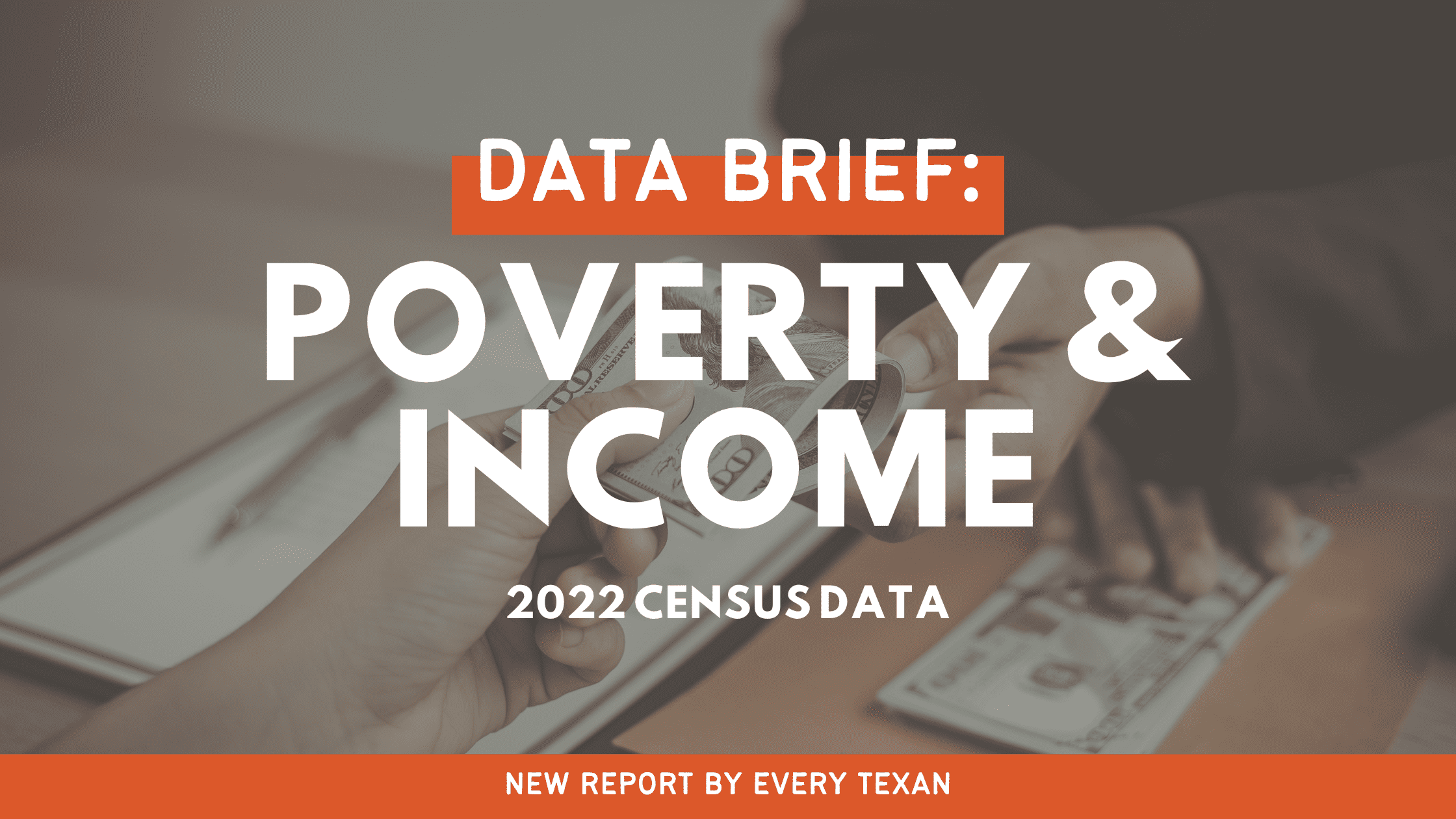Read the full data brief here.
As Texans, there’s more that unites us than divides us. Regardless of our race, income, or hometown, Texans know we are worth a fair shot at prosperity. For too long, the elite few in our state have ignored our needs and blamed immigrants, working families, and LGBTQ+ Texans for our challenges while they fail to create conditions for everyone to thrive.
Texas’ pervasive income inequity showcases the effects of their failure. Every year, the U.S. Census releases data estimates from the American Community Survey (ACS) covering a range of issues, including social, housing, demographic, and economic characteristics. In October 2023, the ACS released its highly anticipated 2022 1-Year Estimates and the accompanying supplemental tables. These data reveal troubling patterns of income inequality, poverty, and disadvantage impacting all Texans, particularly Texans of color.
According to the latest estimates, Texas has the 10th worst poverty rate in the country.

Sadly, these findings are no longer shocking. Longitudinal county-level data reveal that poverty has persisted over time. The U.S. Census classifies counties as “areas of persistent poverty” if they maintain a poverty rate of 20% or higher over an extended period. Thirty Texas counties are classified as being in persistent poverty over the three decades between 1989 and 2019.

For more than 10 years, Every Texan has monitored children’s well-being via health and socioeconomic data trends. Our 2022 Kids Count Data Report revealed that children in Texas experience poverty at higher rates than the state’s adults. Children under 5 years experience the highest rates of poverty at 21%. The ACS’s latest data release reinforces the need for Texas’ political leaders to invest in children across the state. For specific policy recommendations, you can access our 2022 Texas Kids Count Data Book here.

Growing up in poverty can have extensive and often enduring impacts on children, exposing them to significantly elevated risks of academic, social, emotional, and health difficulties. Childhood poverty significantly hinders a child’s capacity to learn, develop skills, and achieve academic success; one study found that children born into poverty have a greater chance of not being ready for school than children not born into poverty. However, policy decisions can curb the impact; Medicaid expansion and facilitated access to benefits programs (like SNAP) have been proven to positively impact children’s outcomes. One study found that kids who receive Medicaid coverage in early childhood are more likely to work, to have higher earnings, to have more education, and to be in better health in adulthood. Policymakers in Texas have an opportunity to make a substantial impact on children’s well-being and future prospects by advocating for and implementing anti-poverty measures.
The latest data also reveal that Texans of color are facing poverty rates higher than the state average. This disparity underscores concerning implications for the overall economic well-being of the population. Addressing and rectifying these disparities is crucial not only for the affected individuals and communities but also for the broader socioeconomic health of our state. Policymakers and community leaders can contribute to a more equitable and prosperous future for all Texans by acknowledging and actively working to alleviate these disparities, creating an environment where everyone can contribute to the state’s economic growth in the process.

While income inequality is not unique to Texas, the latest ACS data vividly illustrate a substantial gap where the wealthiest households earn 30 times more than the lowest-income households. It’s urgent that policymakers prioritize legislation aimed at narrowing economic disparities and addressing inequalities across the state’s diverse communities. 
The ACS’s data are a timely reflection of the economic well-being of the state and its diverse populations. Policymakers have a crucial opportunity to enhance economic mobility and diminish the wealth gap by implementing strategic measures. Focusing on initiatives that promote equitable access to education, health care, and economic opportunities will contribute to a more inclusive and sustainable future for every Texan.
Read the full data brief here. Special thanks to Data & Policy Analyst Samuel Cervantes for authoring this data brief.
